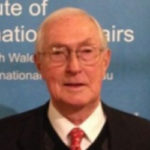Extensive talks in Hawaii on 18 June between US Secretary of State Pompeo and Chinese Politburo member responsible for international affairs, Yang Jiechi, could have been a significant step in the two powers’ difficult relationship, but security has been tight and what they achieved is not yet clear.
From limited statements and remarks made afterwards by the two sides the key words may have been “constructive” on the Chinese side and “reciprocity” on the US side.
It’s not even clear who requested the meeting, with each side claiming the other did. The talks reportedly lasted for 7 hours and included a dinner. Pompeo was accompanied inter alia by Stephen Biegun, who has responsibilities for North Korea. From press reporting, including from the “South China Morning Post”:
- Taiwan, Hong Kong and Xinjiang were discussed;
- Yang said China was committed to improving ties but warned it would “resolutely defend” its interests. According to the Chinese Foreign Ministry spokesman Yang said that China wants a “non-confrontational and mutually respectful” relationship with the US. It hoped the US and China would be accommodative to each other, and that bilateral relations would get onto a track of coordination, cooperation and stability;
- Pompeo stressed the need for fully reciprocal dealings….across commercial, security and diplomatic interactions….and for full transparency and information regarding COVID-19.
Another official accompanying Pompeo, David Stilwell, again stressed the need for “reciprocity” and concrete actions by China in subsequent remarks to the press in Washington.
From the above fragments it is tempting to guess
- That China asked for the meeting to try to call a halt to the steady deterioration in its relations with the US, and put them onto a more sustainable footing; and
- That the US side responded by maintaining its positions and perhaps demands in various areas.
However the Chinese side regarded the proceedings in Hawaii they would not have been encouraged by two developments that occurred shortly afterwards. Just two days later, in a video recorded for a conference in Denmark, Pompeo denounced China as a “rogue actor” bent on global domination, warning that if European countries came to depend on China in any field it would mean “abandoning their values”. And in Washington on 18 June President Trump said the US “certainly does maintain a policy option, under various conditions, of a complete decoupling from China”. (In saying this he contradicted US Trade Representative LIghthizer, who had told a Congressional committee the day before that decoupling had been “a policy option years ago but not a policy or reasonable policy option at this point”.)
There are of course radically differing views about US-China relations. For example the distinguished Singaporean academic and diplomat Kishore Mahbubani said recently that he hopes for “a now unthinkable option: a strong Chinese civilisation and a strong America (that) can live together in peace in the twenty-first century”. In contrast John Mearsheimer, the “realist” academic from Chicago, said in Australia last year that “the US cannot tolerate a peer competitor”—which China clearly sees itself as and seeks to be.
It remains to be seen what contribution the Hawaii meeting has made to this unfolding drama—which needless to say is of the utmost importance to Australia.




